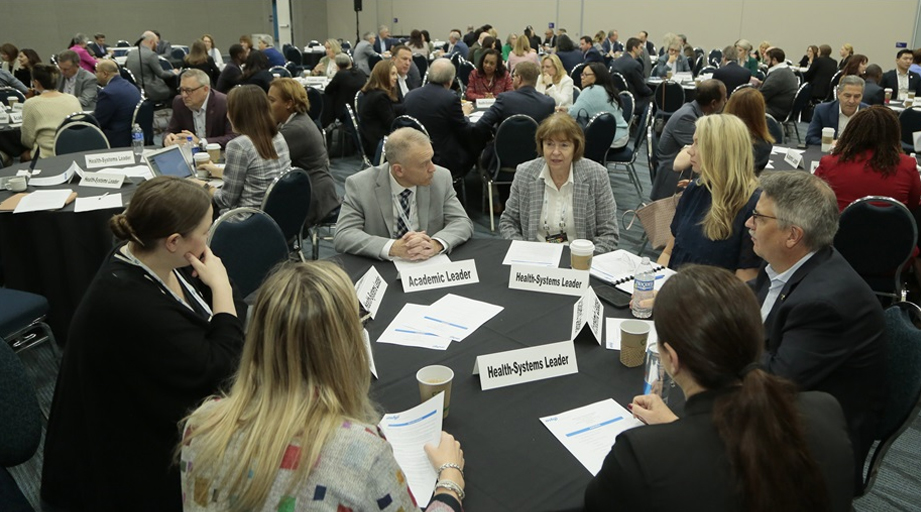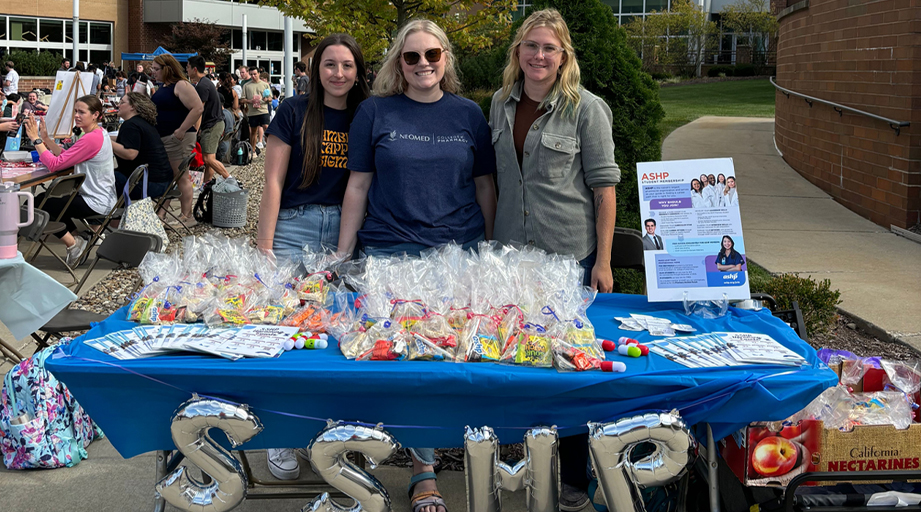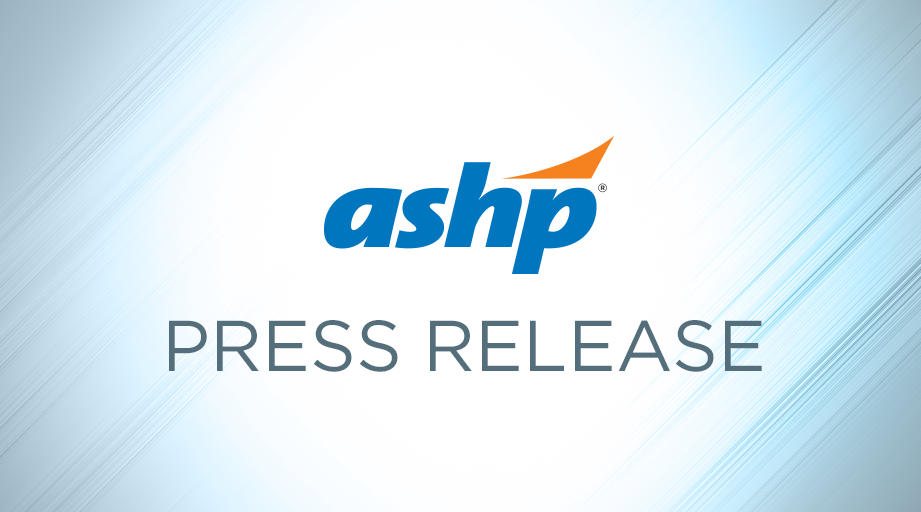
ASHP convened over 150 pharmacy school deans and pharmacy leaders from hospitals and health systems to identify mutual challenges and discuss collaborative solutions — and ultimately strengthen the pharmacy profession — at the 2023 Midyear Clinical Meeting & Exhibition in Anaheim.
At each Midyear meeting, ASHP invites deans from the nation’s accredited schools and colleges of pharmacy (SCOP) to discuss societal and healthcare trends affecting pharmacy practice and education.
Participants assembled in small groups for facilitated discussions around three main topics: experiential education, healthcare technology and data analytics, and workforce pipeline and pharmacy technician shortages. Groups took turns reporting summaries of their discussions.
Experiential Education
In the first portion of the meeting, attendees reflected on the challenges and opportunities their organizations face with placing students in experiential education and effectively providing and facilitating those placements.
One prominent challenge discussed was sufficient placement of Introductory Pharmacy Practice Experience (IPPE) and Advanced Pharmacy Practice Experience (APPE) learners. To expand training capacity, both stakeholder groups discussed methods to recruit more preceptors and enhance preceptor training incentives, as well as a joint desire for more flexible, diverse learning experiences for pharmacy learners.
Healthcare Technology and Data Analytics
The groups were asked to share how their didactic and experiential curricula were integrating — and how their faculty keep up with — innovative technology and data analytics such as machine learning, clinical decision-making algorithms, and generative artificial intelligence (AI). The conversation naturally turned to how such technologies were shaping the future of pharmacy training and practice, and the need for academic and health-system leaders to embrace it.
Participants agreed that SCOP and health systems must develop strategies and guidelines for incorporating such technologies into education and practice. One pharmacy dean likened AI to a calculator: “It’s a tool students should learn how to use appropriately to support their work. However, both academic institutions and health systems are in the early stages of readiness.”
The meeting also explored how pharmacy students can build their digital literacy skills. Some participants favored dedicated courses on the subject, while others thought it should be woven into existing curricula on informatics. Another potential model is to create pharmacy degree concentrations in Digital Health, Data Analysis, Health IT, or Health AI.
Workforce Pipeline and Pharmacy Technician Shortages
In the final portion of the meeting, participants discussed the impact of ongoing pharmacy workforce shortages, and how SCOP and health systems can jointly promote pharmacy as a profession.
Pharmacy deans acknowledged the enormous pressure placed on SCOP to graduate more pharmacists and pharmacy technicians to fill current shortages — “although, of course, it takes six years to evolve a pharmacy professional,” as one attendee said. The group expressed concern that a decrease in SCOP enrollment would ultimately harm sites such as rural healthcare communities the most.
In a post-pandemic landscape, SCOP and health systems must articulate pharmacy as a valuable, viable career option. As work-from-home jobs become more common, they can emphasize the opportunity to work as a pharmacist part-time or through telehealth. “You can positively impact patient care and still live the life you want to live,” said one academic leader.
As for recruitment, participants agreed the pharmacy field needs to get creative. Attendees posed the idea of recruiting from middle schools and even elementary schools to help build up the workforce pipeline. When it comes to pharmacy technicians, health systems could look to their employees serving in other supporting roles who want to advance their healthcare careers.
However, leaders agreed, recruitment and retention efforts will only succeed if we simultaneously foster resilience and well-being for pharmacy students and the workforce. One participant said she was focused on “creating health system work environments people don’t want to leave.”
The group concluded by supporting ASHP’s continued facilitation of open dialogue between leaders of hospitals and health systems and SCOP in the future. “Thank you for your attendance and the great discussions,” ASHP President Nishaminy (Nish) Kasbekar said in closing. “We’ve got some notable challenges – but also solutions.”









